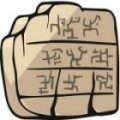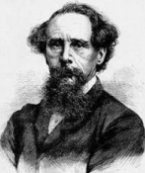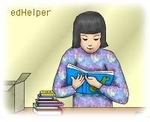
Worksheets and No Prep Teaching Resources
Reading Comprehension Worksheets
History of Books and Writing

History of Books and Writing
 Worksheets and No Prep Teaching Resources Reading Comprehension Worksheets History of Books and Writing |
 History of Books and Writing |
| edHelper's suggested reading level: | grades 9 to 12 | |
| Flesch-Kincaid grade level: | 8.27 |
|
Charles Dickens
By Colleen Messina |

|
 1 In a dismal factory in nineteenth century England, a small boy worked hard because his father was in prison. The terrible memories of that dreary place haunted him for the rest of his life. The boy eventually became one of England's greatest novelists and humorists. His name was Charles Dickens, and his experiences in the factory inspired memorable passages in two of his most famous books, David Copperfield and Great Expectations.
1 In a dismal factory in nineteenth century England, a small boy worked hard because his father was in prison. The terrible memories of that dreary place haunted him for the rest of his life. The boy eventually became one of England's greatest novelists and humorists. His name was Charles Dickens, and his experiences in the factory inspired memorable passages in two of his most famous books, David Copperfield and Great Expectations. |
Create Weekly Reading Books
Prepare for an entire week at once! |
| Leave your feedback on Charles Dickens (use this link if you found an error in the story) |
 |
History of Books and Writing
|
 |
High School Reading Comprehensions and High School Reading Lessons
|
 |
Social Studies
|